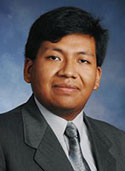This program explores both the persistent inequalities within and across nations and innovative policies to address them. A key part of this program is the development of alternative measures of economic deprivation and well-being that are more comprehensive than the prevailing approaches.
Associated Scholars
-
 Ajit Zacharias
Ajit Zacharias Thomas Masterson
Thomas Masterson Aashima Sinha
Aashima Sinha Fernando Rios-Avila
Fernando Rios-Avila Luiza Nassif Pires
Luiza Nassif Pires213 Related Publications
-
Working Paper No.912
29 August 2018
The Sources and Methods Used in the Creation of the Levy Institute Measure of Economic Well-Being for the United States, 1959–2013
-
Public Policy Brief No.146
16 August 2018
Stagnating Economic Well-Being and Unrelenting Inequality
-
Research Project Report
08 August 2018
The Measurement of Time and Consumption Poverty in Ghana and Tanzania
-
Policy Notes No.4
31 May 2018
Wage Employment and the Prospects of Women’s Economic Empowerment
-
Working Paper No.901
06 March 2018
Income Distribution, Household Debt, and Aggregate Demand
-
Press Release
22 December 2017
Time Deficits and Hidden Poverty Threaten to Undermine U.N.’S Sustainable Development Goals, New Levy Institute Study Says
-
Policy Notes No.4
09 November 2017
How Time Deficits and Hidden Poverty Undermine the Sustainable Development Goals
-
Working Paper No.885
27 February 2017
Quality of Statistical Match of Household Budget Survey and SILC for Turkey
-
Working Paper No.880
04 January 2017
The Great Recession and Racial Inequality
-
Working Paper No.879
22 December 2016
Distribution-led Growth through Methodological Lenses
-
Working Paper No.873
13 September 2016
Quality of Match for Statistical Matches Used in the Development of the Levy Institute Measure of Time and Consumption Poverty (LIMTCP) for Ghana and Tanzania
-
Working Paper No.871
09 August 2016
Simulations of Employment for Individuals in LIMTCP Consumption-poor Households in Tanzania and Ghana, 2012


